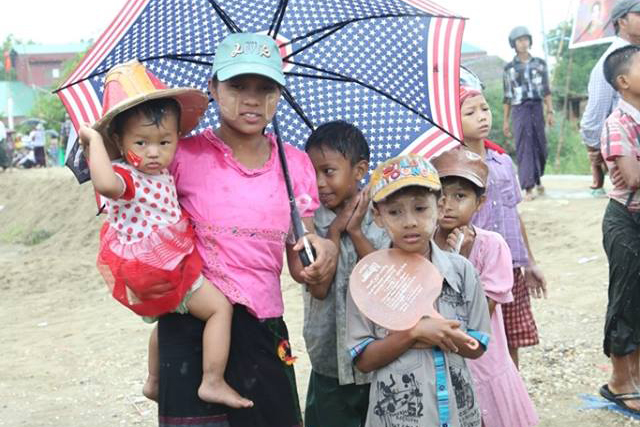The historic parliament election is due to be held on 8 November 2015 in Burma/Myanmar. This election is seen by some as the country’s first free and fair election in 25 years, and that the future of democratic reform will depend on the outcome of this election. The central issue is whether the military rule in Myanmar can be replaced with a democratic form of government. The opposition party and many civil society organizations have expressed concerns whether the free and fair election will enable the people of Myanmar to express their will freely without fear. The opposition leader Aung San Suu Kyi has called for vigorous international monitoring of the election.
 United Nations rights investigator has questioned whether Myanmar election in November can be considered free and fair as dissenting candidates have been disqualified, and hundreds of thousands of people denied the right to vote. Also, UN Special Rapporteur on the Situation of Human Rights in Myanmar Yanhee Lee has stated the restriction on the freedom of expression, assembly and association, and the arrest and excessive use of force against protester, poses serious risks for holding a genuine election. She has pointed out that migrant workers, internally displaced people, refugees, Burmese citizens living abroad and those living in conflict and flood affected areas would not be able to vote.
United Nations rights investigator has questioned whether Myanmar election in November can be considered free and fair as dissenting candidates have been disqualified, and hundreds of thousands of people denied the right to vote. Also, UN Special Rapporteur on the Situation of Human Rights in Myanmar Yanhee Lee has stated the restriction on the freedom of expression, assembly and association, and the arrest and excessive use of force against protester, poses serious risks for holding a genuine election. She has pointed out that migrant workers, internally displaced people, refugees, Burmese citizens living abroad and those living in conflict and flood affected areas would not be able to vote.
Reports about attacks on opposition candidates and members are threatening the electoral process. On 29 October, there was a report of opposition lawmakers and some party members being attacked with machetes and being injured. The lower house lawmaker from NLD party, Naing Nan Lynn, who is running for a seat in the regional assembly in Yangon, was attacked while campaigning around 9:30 p.m. by three men with machetes.
The Asian Human Rights Commission urges the international community to step up pressure on the government of Myanmar to ensure that the election on November 8 could be held in a peaceful manner.